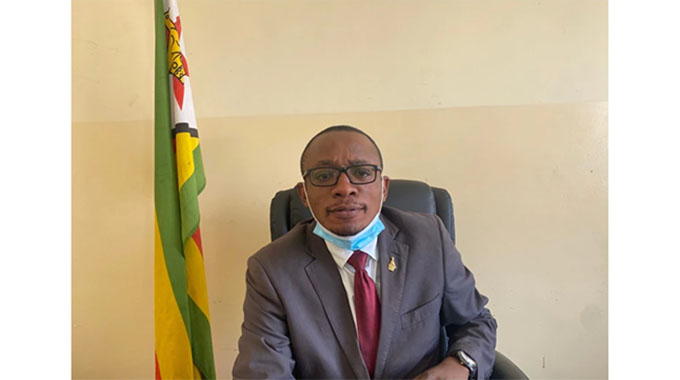Call for severe sentences against armed robbers, child abusers

Conrad Mupesa-Mashonaland West Bureau
Courts must deliver strong judgments against people convicted of armed robbery and abuse of women and children, President Mnangagwa has said.
He said this in a speech read on his behalf by Justice, Legal and Parliamentary Affairs Minister Ziyambi Ziyambi during the official opening of the Judicial Service Commission (JSC) sentencing conference in Kadoma yesterday.
The President said the development of Sentencing Guidelines was significant in Zimbabwe’s criminal justice system and the country’s strategic trajectory, as it resonated with the drive and commitment to improve access to justice for all.
Transformation of the development of sentencing guidelines, added President Mnangagwa, will increase the public’s trust, faith and confidence in the criminal justice system.
“As we develop the economy and say that no one and no place shall be left behind, we also do not want to be left behind by other nations in matters of contemporary developments,” he said.
“The sentences imposed by our courts must reflect the dynamics of what is taking place in our communities. It is important that there is a correlation between the criminal justice system and the reasonable expectations of society.
“The protection and promotion of public safety must be understood to be the primary purpose of the criminal justice system. Where violent crimes such as armed robbery and abuse of women and children are on the rise, the country’s abhorrence must be reflected in the punishments meted out on those found on the wrong side of the law.”
The President’s call comes as Zimbabwe has recorded a worrying spike in cases of armed robbery despite the issuance of an amnesty for the handover of all unlicenced guns, many of which are believed to be used in committing the crimes.
Zimbabwe is grappling with a rise in cases where girls under the age of consent, some as young as 8 years old, are being raped and impregnated.
Two cases that have shocked the nation relate to the 9-year-old Tsholotsho girl who was impregnated by a 13-year-old cousin and has since given birth.
The other case is of an 8-year-old Bindura girl who was also raped and is seven months pregnant now.
Two 17-year-old boys have since been arrested and released into the care of their parents until the girl gives birth and DNA tests are conducted to ascertain the father of the baby.
Turning to national development, President Mnangagwa said Vision 2030 sets out what Government is working towards, which is protecting basic human rights through the rule of law.
“We can only achieve this by ensuring that we respect human rights while enhancing access to justice, redressing economic challenges, and championing investment and business development.
“The formulation of Sentencing Guidelines is a significant event in the strategic pursuit of Vision 2030 as a nation, as it relates to the drive and commitment to ensure access to justice for all.
“I am convinced that the draft Sentencing Guidelines to be formulated by the Judicial Conference will take into account all the factors prescribed by the law to promote consistency in sentencing and will increase the public’s trust, faith and confidence in the criminal justice system.”
President Mnangagwa added that while the Government was aware that sentencing was at all times supposed to meet the justice of the case, justice was not going to be served where there is an indiscriminate incarceration of offenders in circumstances where imprisonment should be avoided.
In her opening remarks, Chairperson of the Judicial Conference Council, Justice Rita Makarau noted that the codification of penalties would assist in de-mystifying the sentencing procedures, especially the assessment of an appropriate penalty.
Chief Justice Luke Malaba said there had been instances of distortions in sentencing without taking regard of the law, hence the conference which seeks to come up with guidelines and procedures for sentencing to avoid discrepancies.
Sentencing inconsistencies are rampant across the continent, with Malawian judge, Justice Healy Potani stressing during the first day of the four-day-workshop how this continues to dent peoples’ confidence in the justice delivery system.
“The guidelines are crafted to cure the problem of inconsistencies in sentencing. Courts have often been criticised for meting out inconsistent sentences.
“Consistency demands that offenders who commit similar offences and whose circumstances are similar, should receive similar sentences,” he said.
Mashonaland West Minister of State for Provincial Affairs and Devolution, Mary Mliswa-Chikoka, also attended the official opening.








Comments